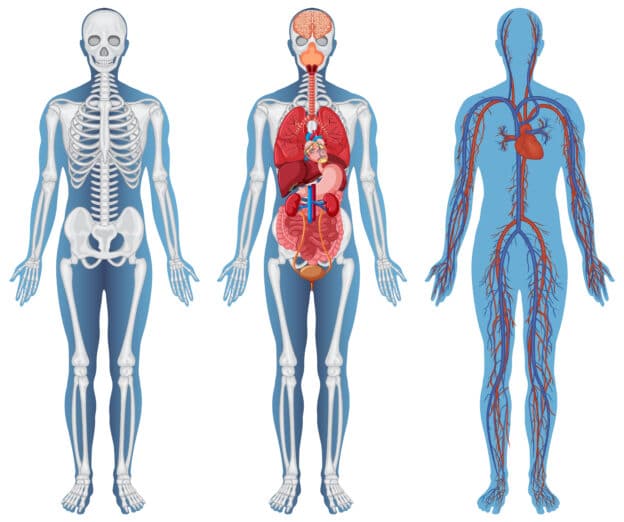Anatomy

About Course
The Human Anatomy course offers an in-depth understanding of the structure and organization of the human body. Designed for students of medicine, nursing, and allied health sciences, this course provides a comprehensive exploration of the human body — from cells and tissues to organ systems and their interrelationships.
Through detailed lectures, high-quality diagrams, 3D visualizations, and interactive quizzes, learners will gain a clear conceptual and practical understanding of human anatomical structures and their clinical relevance.
Key Topics Covered:
-
Introduction to Anatomy and Anatomical Terminology
-
Skeletal System: Bones, Joints, and Movements
-
Muscular System and Applied Anatomy
-
Cardiovascular and Lymphatic Systems
-
Nervous System: Brain, Spinal Cord, and Peripheral Nerves
-
Respiratory System Anatomy
-
Digestive System and Its Accessory Organs
-
Urogenital and Reproductive Systems
-
Endocrine System and Glands
-
Surface and Radiological Anatomy
-
Clinical Correlations and Dissection Guidance
Learning Outcomes:
By the end of this course, students will be able to:
-
Identify and describe the structures and functions of major organ systems.
-
Understand anatomical relationships and their clinical significance.
-
Apply anatomical knowledge to diagnose and interpret clinical conditions.
-
Utilize anatomical models, images, and diagrams effectively.
Who Should Enroll:
-
MBBS, BDS, Nursing, and Paramedical Students
-
NEET, AIIMS, JIPMER, and TNPSC Medical Exam Aspirants
-
Anyone interested in understanding the human body in detail
Course Features:
-
Video Lectures by Expert Faculty
-
Detailed Notes and Illustrations
-
Unit-wise Quizzes and Assessments
-
Downloadable Study Materials
-
Certificate of Completion
Student Ratings & Reviews

